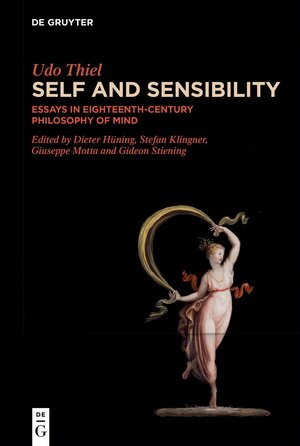
Self and Sensibility
Essays in Eighteenth-Century Philosophy of Mind
von Udo Thiel, herausgegeben von Dieter Hüning, Stefan Klingner, Giuseppe Motta und Gideon StieningThis volume collects 19 of the author’s essays on eighteenth-century accounts of self-consciousness, personal identity and related issues, covering over a hundred years of a philosophical debate that has shaped the way in which these topics are discussed today. After a detailed analysis of the seventeenth-century background, the essays analyze and critically evaluate French, British and German contributions, ranging from Claude Buffier early in the century to Kant and aspects of the Post-Kantian debate. The essays deal with a large number of diverse sources, including the views and arguments of well-known philosophers such as Hume and Kant, as well as lesser-known thinkers, such as LeLarge de Lignac and Thomas Cooper, organized around four, partly overlapping main themes: a) the self and its identity as a matter of a special 'feeling' (sentiment intime, Selbstgefühl) in thinkers such as Condillac, Rousseau and Feder, b) materialist treatments of these issues in, for example, Priestley and Hißmann, c) Scottish Common Sense accounts, with a special focus on Reid, and d) Kant’s analysis and the philosophical context in which it was developed, with a particular emphasis on the German debate (Wolff and his critics, Lossius, Tetens and others).




